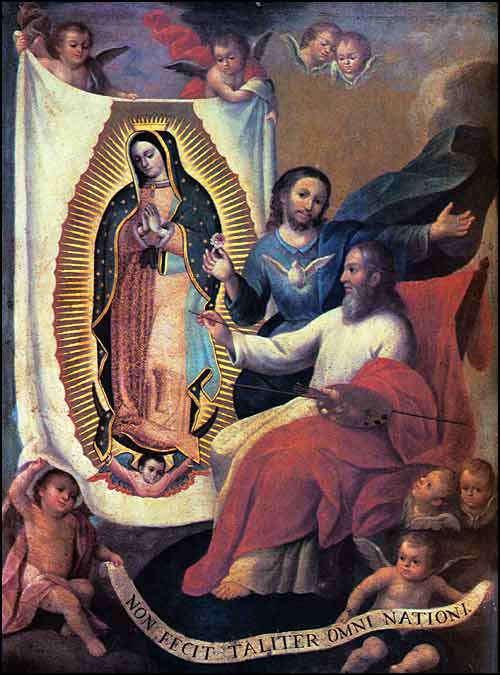|
In some cases Bible-believing Christians can agree those the
Roman Church persecuted were actually heretics, though they did not
deserver their fate; for instance, the Cathari believed Satan had
created the world. But the Bohemians who insisted upon receiving
both bread and wine at communion? This is a heresy? On what possible
basis? The victims whose blood cries out for justice include many true
Christians.

Apostolic Succession
When Marcion arose in the early church, claiming that his gnostic theology
was just what the apostle Paul meant by his letters, critics realized that
inspecting the churches founded by Paul, or guided by Paul subsequent to their founding
by others (like Rome), represented a useful way of checking this claim.
Would Paul have taught the congregations he was gathering a different gospel
than he described in his letters? So why was Marcion's novel, unheard-of
gospel not the gospel anyone could remember hearing on grandma's knee?
In the early years of the church, the doctrine taught at churches of apostolic
foundation did provide a useful check against 'wild' interpretations of scripture.
Everyone has heard of the child's game of telephone, which shows
how to garble a message:
"Think of the party game Telephone, in which one person
in a circle whispers something to the next, who whispers it to the
next, and so on around. The last person tells the group what he or
she heard, and inevitably it differs comically from what was
originally said. The more links in a chain of transmission, the
greater the message degradition." (Tamim Ansay,
The Invention of Yesterday, p. 78).
Did the early church writers who mention the apostolic origin of
various churches in order to confute the gnostics intend to deny
this general principle, or make use of it? Since they tend to
emphasize how short the chain of transmission was from the apostles'
day to their own and how few the links, it seems that they accepted
the validity of the principle. If there had been fifty changes of
regime between the apostolic church and their own, rather than three
or four, their point would have been vitiated, not established. The
modern Roman Catholics who adopt this argument believe, rather, that
fifty links would make their point even more unassailable! They have
inverted the argument, turning it inside out.
These early authors stressed how short was the chain and how few the links leading back to the
apostolic generation. Modern Roman Catholics invert this claim, looking at it through the wrong end of the telescope.
They glory in how many links there are in the chain, even though a transmission chain with many
links gives no guarantee the message hasn't been garbled. Apostolic succession
supposes that each bishop of Rome in turn learned his doctrine by sitting
at the feet of his predecessor. Even in a healthy state of the church this
was not always so. But in those ages when bandit chieftains vied over this
lucrative office, buying it outright, of what worth is such a 'succession'?:
"Gregory VI Pope 1045 to 1046, the godfather to the infamous Pope Benedict IX, John
Gratian (or Giovanni Graziano) was a participant in the reprehensible effort
of Benedict to sell the papacy in 1045. John possessed a reputation for
virtue and was known in some circles for his reforming zeal. He was consulted
by his godson as to whether it was possible to resign the papacy because
Benedict had become infatuated with a woman and was anxious to wed. John
replied in the affirmative, and was suddenly offered the throne himself
in return for a large payment of money. While technically paying the pope
to step down, John in effect purchased the throne of St. Peter." (The
Pope Encyclopedia, Matthew Bunson, p. 157).
This office would change hands for money many times in years to
come. Norman Rockwell produced an illustration showing a long line of tale-bearers, calling one
another up and reporting a juicy bit of gossip. The chain ended where it began, with the first
gossip starting back in shock at what she heard. What she heard was not the same tale she had told at the
start of the chain. That is what is prone to happen with long transmissions chains.


|


